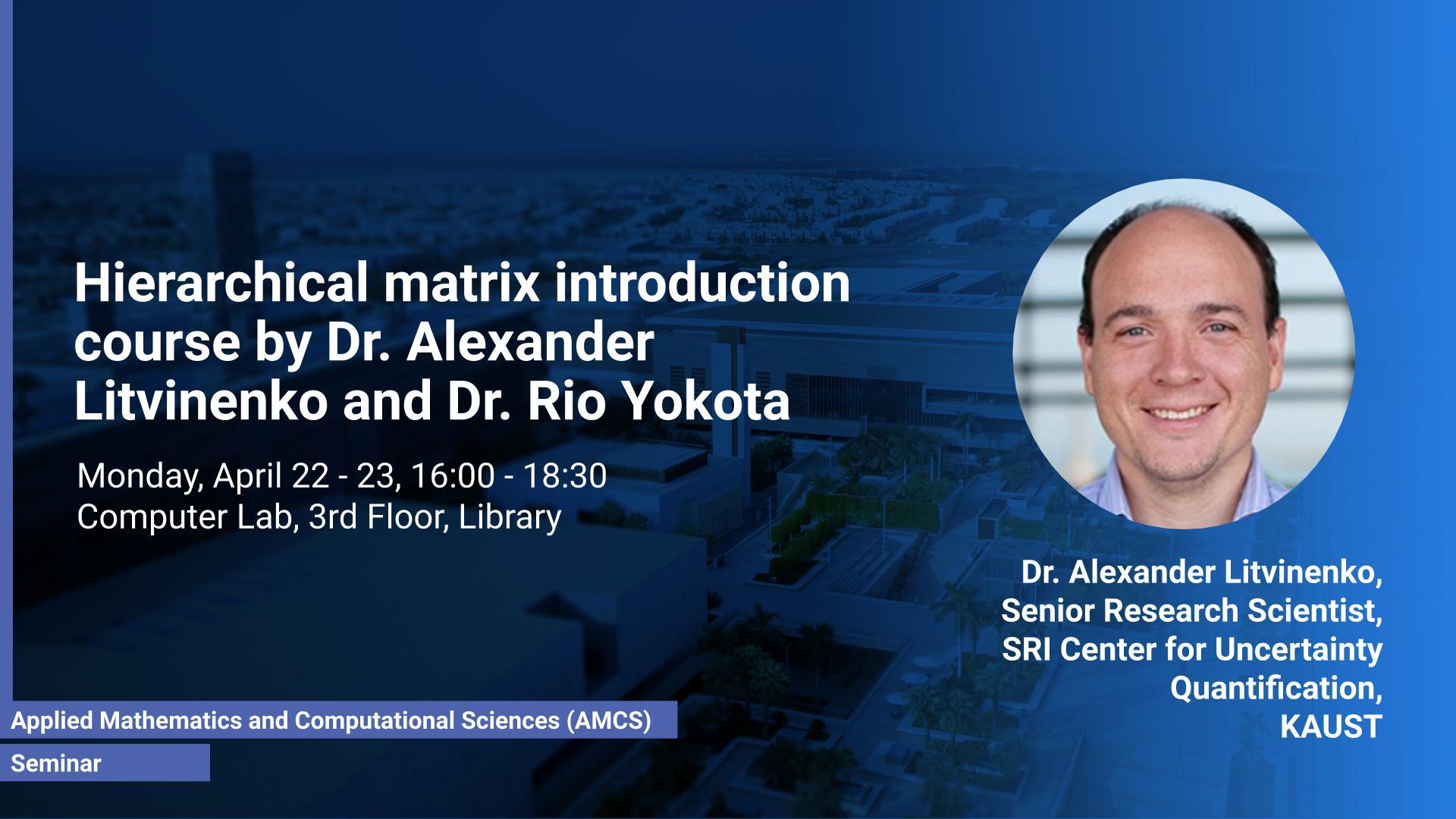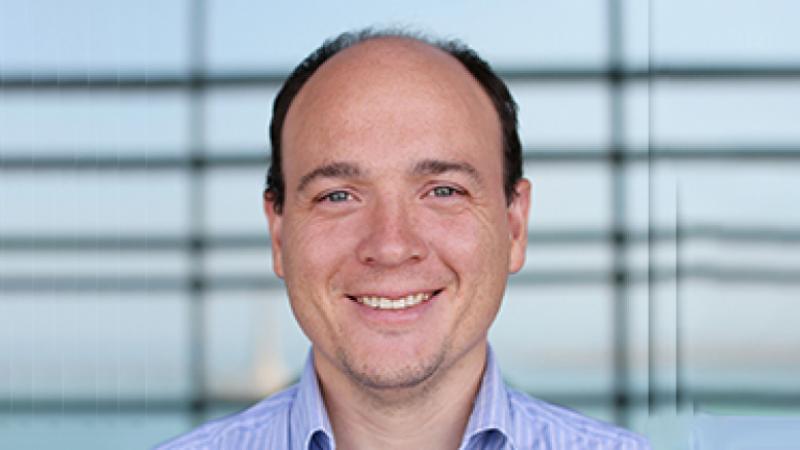Event Start
Event End
Location
Program:
(day 1):
Installation
Main ingredients: cluster tree, block cluster tree, admissibility conditions, low-rank matrices
1D FEM Example
1D BEM Example
(day 2):
2D FEM Example
2D, 3D BEM Example
Overview of some other useful features
See more in www.hlib.org and the lecture notes http://www.mis.mpg.de/publications/other-series/ln/lecturenote-2103.html
Brief Biography
Alexander Litvinenko joined the Stochastic Numerics Group and Strategic Initiative in Uncertainty Quantification at KAUST in 2013. He specializes in efficient numerical methods for stochastic PDEs, uncertainty quantification, and multi-linear algebra. He is involved in Bayesian update methods for solving inverse problems, with the goal of reducing the complexity both the stochastic forward problem as well as the Bayesian update by a low-rank (sparse) tensor data approximation. A further goal is optimal design of experiments to maximize the information gain for a given amount of experimental effort. Applications include aerodynamics, subsurface flow, and climate prediction. Alexander earned B.S. (2000) and M.S. (2002) degrees in mathematics at Novosibirsk State University, and his PhD (2006) in the group of Prof. Hackbusch at Max-Planck-Institut in Leipzig, on the combination of domain decomposition methods and hierarchical matrices for solving elliptic PDEs with jumping and oscillatory coefficients. From 2007-2013 he was a Postdoctoral Research Fellow at the TU Braunschweig in Germany where he became interested in his current research focus area of low-rank/sparse methods for uncertainty quantification as well as Bayesian updating for multi-parametric problems.
Brief Biography
Rio Yokota is a Research Scientist in the Strategic Initiative for Extreme Computing at KAUST, where is also advising several KAUST students in their MS and PhD research. He currently works on fast multipole methods (FMM), and their implementation on large-scale heterogeneous architectures. During his PhD in Mechanical Engineering at Keio University, he worked on the implementation of fast multipole methods on special purpose machines such as MDGRAPE-3, and then on GPUs after CUDA was released. During a post-doc at the University of Bristol, he continued to work on FMM, and was part of the team that won the Gordon Bell prize for price/performance in 2009 using 760 GPUs. During a postdoc with Lorena Barba at Boston University he developed an open source parallel FMM code -- ExaFMM. He is now running this code on full nodes of the TSUBAME 2.0 and K computer in Japan, and also on large Blue Gene and Cray machines, for applications in molecular dynamics and sparse preconditioners. Rio is a member of ACM and SIAM.

